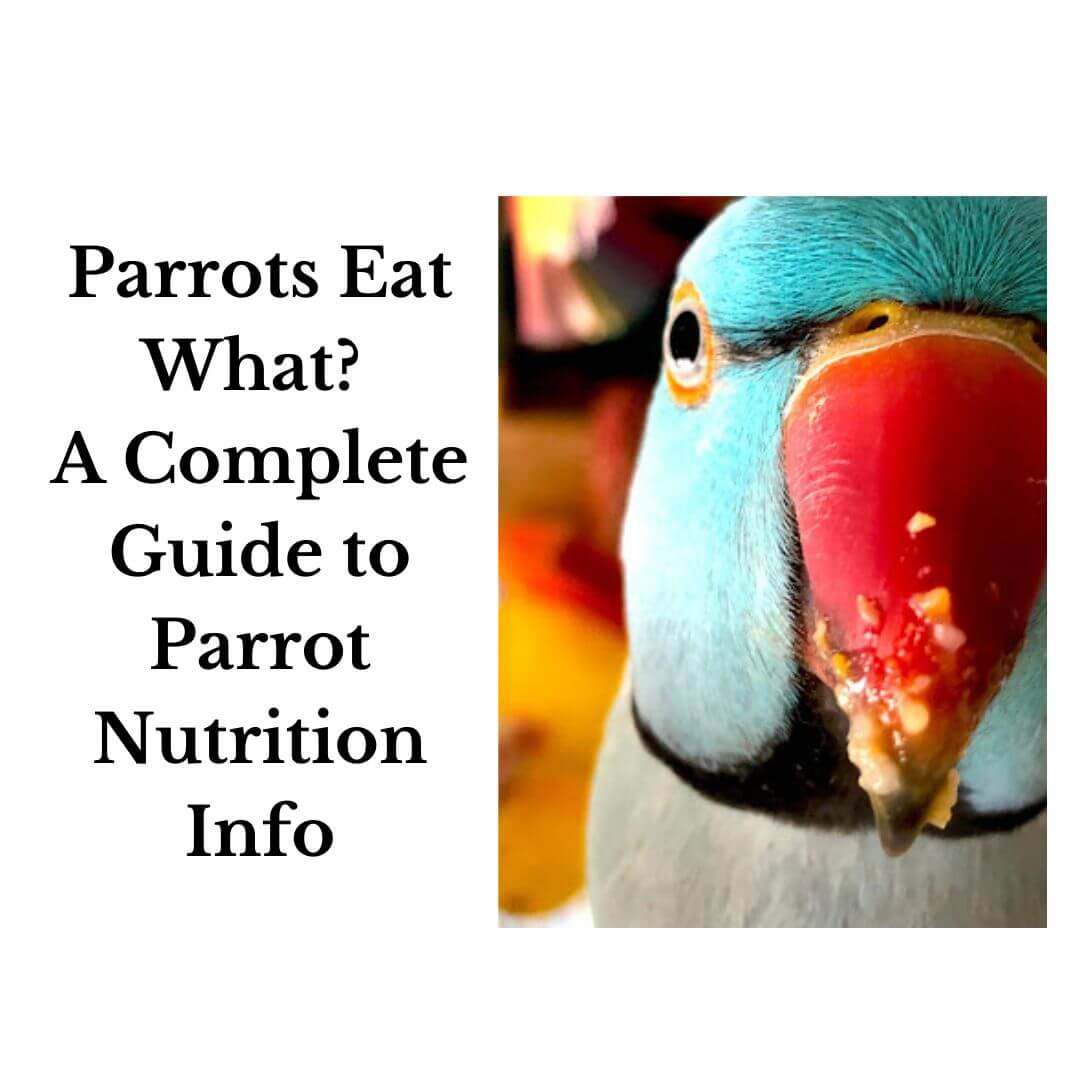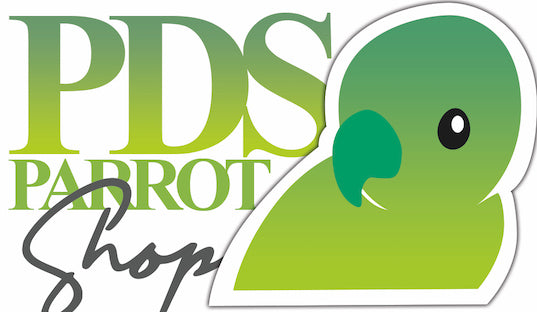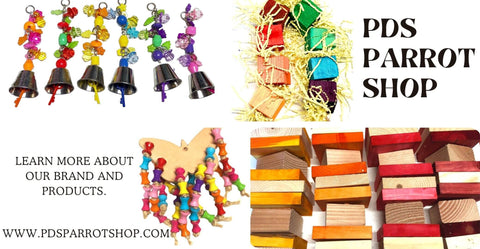
Parrots Eat What? A Complete Guide to Parrot Nutrition
Share
In the vast realm of pet care, one question consistently emerges at the forefront - parrot food. The internet is flooded with noise of contradictory information, making it a Herculean task to find the truth. Fear not, for our hands-on experience is here to demystify the world of bird nutrition.

Pin Me
The Essentials of Parrot Nutrition
First and foremost, it's imperative to recognize the dietary no-nos for your pet bird. Steer clear of the following:
- Say No to Avocado: This innocent-looking food can spell disaster for your parrot's health.
- Avoid Salty and Junk Food: Just as they are detrimental to us, these items are equally harmful to your avian companions.
- Chocolate - A Strict No: Theobromine in chocolate is toxic to birds; never let them nibble on this sweet temptation.
- Limit foods high in acid: Parrots have different digestive systems, and high-acid foods may not be well-tolerated.
- Limit high-calorie foods: Since parrots typically get less exercise, they require fewer calories.
Nourishing Your Parrot - Our Approach
At our aviary, we abide by a simple mantra: balance is key. We believe that moderation is the backbone to a wholesome diet for our cherished birds. Our avian menu includes:
- A Bounty of Fruits, Veggies, and Greens: Every day, our rescued parrots indulge in a colorful assortment of nature's gifts.
- Grains: A crucial source of energy and nutrients for your parrot's vitality.
- Seed Mix: While we advocate diversity, seeds are a part of our repertoire, albeit not an exclusive diet.
- Nutty Delights: Nuts are a prized component, offering essential fats and proteins.
-
Pellets: The Lowdown: (Sub-subheading)
A Grain of Caution with Colored Pellets
Colored pellets may catch your eye, but they come with a caution. Artificial dyes used in these pellets have been linked to behavioral and health issues in birds.
The Virtues of Non-Colored Pellets in Moderation
We recommend non-colored pellets, but exercise caution:
- Vigilant Ingredient Scrutiny: Not all pellets are created equal; meticulously read the ingredient list.
- Follow Instructions to the Letter: Adhere to the feeding guidelines provided on the pellet packaging.
Freshness is Paramount
For us, freshness is non-negotiable. Every day, our parrots enjoy a mixture of:
Fresh Fruits, Veggies, and Greens: Be it a crisp salad or a steamed vegetable medley, we ensure our parrots receive the best of the produce aisle. Adding sprouts and nuts further enriches their meal.
Beware the Dried Fruit Trap
Dried fruits may seem like a convenient snack, but they are essentially sugar-laden candies. Both for humans and pets, they are best avoided in favor of fresh alternatives.
Individual Variations and Considerations
Our dietary regimen has proven effective for most of our avian companions. However, it's essential to acknowledge that every parrot is unique. Some may prove finicky when it comes to fresh foods, necessitating creative solutions like birdie bread to sneak in those essential veggies.
A Note on Medical Diets
Finally, always keep your parrot's medical needs in mind. If your pet bird requires a specialized diet due to health issues, it's imperative to adhere to the prescribed regimen.
What should I do if my parrot refuses to eat fresh fruits and vegetables?
Parrots can be notoriously picky eaters. If your pet bird is hesitant about fresh produce, try incorporating them into their diet gradually. You can also experiment with different preparation methods and combinations to find what they enjoy.
Are there any specific fruits and vegetables that are especially beneficial for parrots?
Yes, some fruits and vegetables are particularly nutritious for parrots. Consider including orange food for vitamin A, kale for calcium, vibrate colors for antioxidants, in their diet for essential vitamins and minerals.
How can I transition my parrot from a seed-only diet to a healthier one?
Transitioning your parrot to a more balanced diet may take time and patience. Start by gradually reducing the amount of seeds in their diet while introducing fresh foods. Monitor their progress and consult with an avian veterinarian if needed.
Can parrots eat cooked food?
Yes, parrots can consume cooked foods as long as they are safe and free from harmful ingredients. Some parrots enjoy warm, cooked grains and vegetables.
Is it okay to give my parrot treats occasionally?
Occasional treats are acceptable, but they should be given sparingly. Ensure that the treats are safe for parrots and do not compromise their overall diet.
What are some signs that my parrot may have dietary issues or health concerns?
Watch for signs like changes in appetite, weight loss, abnormal droppings, or a decrease in activity. If you notice any of these, consult with an avian veterinarian immediately.
Navigating the world of parrot nutrition can be challenging, but with the right knowledge and approach, you can provide your pet bird with a healthy and balanced diet. Remember to prioritize fresh fruits and vegetables, moderate the use of seeds and nuts, and be cautious with pellet choices. Each parrot is unique, so adapt your approach to suit their individual preferences and consult with a veterinarian if you have concerns.
More Articles About Bird Health
Herbs for Parrots: A Flavorful Journey with Health Benefits
What seeds are best for parrots?
Monika Sangar, MSc – Molecular Biology | Avian Nutrition Specialist | Founder: PDSnonprofit | Owner: Pds Parrot Shop
Monika Sangar is a parrot rescuer, bird food chef, and toy designer with over a decade of experience in avian care and nutrition. She is the founder of Prego Dalliance Sanctuary and the author of The Science of Avian Nutrition, a cookbook dedicated to fresh, healthy meals for parrots. Explore more bird care tips and bird toys at PDS Parrot Shop!

